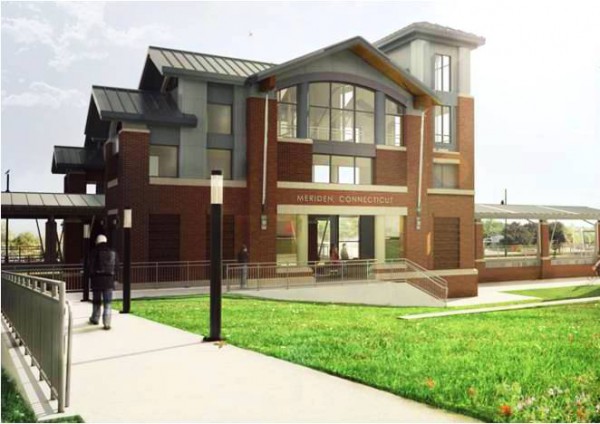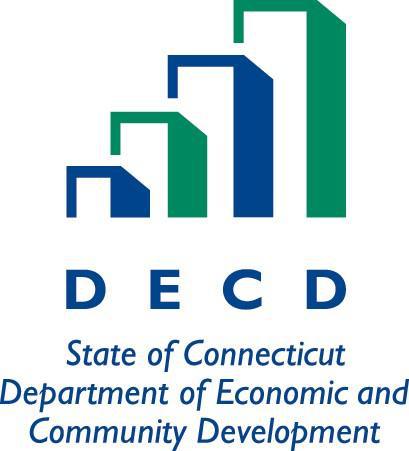Meriden Re-Make Continues, Spurred by State Support; Additional Funds Sought to Implement Plan
/The City of Meriden is seeking $2 million from the State of Connecticut to improve six roadway sections in downtown Meriden, to improve traffic flow, improve accessibility and increase safety for vehicles, bicyclists and pedestrians traveling within Meriden’s Transit Oriented Development (TOD) zoning district. The grant application is the latest effort as part of the city’s “Meriden 2020 Bringing It Together” initiative, which is focused on transit oriented development to recapture the luster of the “Silver City” and has received a steady flow of state funds in recent months to boost the effort.
The roadway sections - including Colony Street, West Main Street, State Street, Perkins Square/South Colony and East Main Street - were selected and analyzed for improvements in prior studies and investigations. The initiative is an outgrowth of a two State of Connecticut TOD Pilot grants, a US Dept. of Housing and Urban Development (HUD) Sustainable Challenge grant and a HUD Choice Neighborhoods Planning grant.
A website, meriden2020.com, highlights the numerous efforts underway to redevelop the city’s central business, including ways to resolve historic flooding issues, repurpose underutilized brownfield sites, remake the rail station area into a modern transportation center, and provide links to the regional trail system.
Meriden’s Transit Oriented Development program seeks to “transform the Meriden Transit Center (MTC) and the half-mile area around it into a vibrant neighborhood that includes new residential and commercial development, public spaces and improved access to public transportation.” Construction of the new transportation center is underway, and local officials recently initiated a study to examine planned ridership and usage by area residents and businesses.
Last week, the Connecticut Housing Finance Authority (CHFA) and Department of Housing (DOH) announced approval funds  for a proposed mixed use development project at 161-177 State Street, which is phase one of a multi-phase project that includes demolition of the Mills public housing project and implementation of the Harbor Brook Flood Control project north of the Hub site. The new building will be within walking distance of Meriden`s new Transit center.
for a proposed mixed use development project at 161-177 State Street, which is phase one of a multi-phase project that includes demolition of the Mills public housing project and implementation of the Harbor Brook Flood Control project north of the Hub site. The new building will be within walking distance of Meriden`s new Transit center.
The proposed project will have 75-units of mixed-income family housing, with ground level retail space and a preschool. The property will include eight supportive units and 60 units targeted for households with incomes of 60 percent or less of Area Median Income (AMI). In addition, 26 of the 60 units will be supported by project based Section 8.
 In February, the Connecticut Small Business Development Center (CTSBDC), the City of Meriden and The Midstate Chamber of Commerce announced the opening of the newest CTSBDC office, to be located at Meriden City Hall.
In February, the Connecticut Small Business Development Center (CTSBDC), the City of Meriden and The Midstate Chamber of Commerce announced the opening of the newest CTSBDC office, to be located at Meriden City Hall.
The new office is offering professional, confidential business advising to entrepreneurs in every stage of business and all industry sectors in the City of Meriden. “This beneficial partnership between the Connecticut Small Business Development Center and the City of Meriden ensures that entrepreneurs of the city have access to the necessary resources available to assist with starting or growing their business. This allows for economic growth and job creation in this area,” said CTSBDC State Director Emily Carter. CTSBDC also has a “virtual” location at the Meriden Public Library, where individuals can connect with CTSBDC advisors online.
In January, Meriden was awarded $100,000 in state funds to further revitalization and redevelopment in the TOD and Choice Neighborhoods target areas. The funding came through the state Department of Economic and Community Development (DECD) Brownfield Area-Wide Revitalization (BAR) Grant program, a year-old state pilot program that encourages communities to consider areas such as neighborhoods, downtowns, waterfront districts, or other sections with multiple brownfields and develop strategies to assess, clean up, and reuse the parcels for business, housing, and public amenities that will generate jobs and revenues and revitalize the entire area.
Weeks later, the Department of Economic and Community Development awarded the Meriden a $2 million grant for the demolition and remediation of the Mills Public Housing Complex. The city plans to demolish the structures at 144 Mills Memorial as a prerequisite to implementing the Harbor Brook Flood Control Plan at the site. While the 144 Mills Memorial site will be used for flood control purposes and will not be used for development, officials say the construction of the flood control plan at the site will allow for development to proceed at the adjacent sites, which include the Meriden Hub Site (located at 1-77 State Street) and at the Mills Megablock site (located at 161-177 State Street and 62 Cedar Street).
Meriden officials point out that commuter rail service to Hartford and New Haven is scheduled to begin later this year. The new commuter rail service is expected to spur significant “transit oriented development” in the city center. Once the rail service is operational, nearly 140,000 workers located within one mile of a rail station will be able to commute to Meriden within a 40-minute ride, the website points out.



 correspondingly on Connecticut’s overall economy.
correspondingly on Connecticut’s overall economy.



























